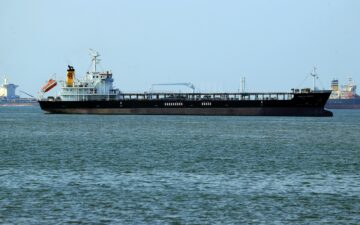Our Ocean Heritage is expansive. It includes physical objects on the seafloor like shipwrecks and submerged coastal settlements, and also non-physical connections to the sea, including Indigenous and local customs and ocean knowledge. However, this heritage is a limited resource and constantly faces new threats as coastlines are developed and offshore industries continue to expand. Protecting underwater cultural heritage (UCH) has become increasingly challenging yet remains essential for preserving the cultural and historical remnants that define our relationship with the ocean. While UCH holds immense value, however, some elements pose risks to the marine environment, necessitating careful management plans as we advocate for their protection.
Potentially Polluting Wrecks
One critical concern when considering the preservation of Ocean Heritage are potentially polluting wrecks (PPWs). These are wrecks from past maritime conflicts that now lie within atolls, harbors, and sounds around the world. They still contain hazardous cargo including oil, heavy metals, and other pollutants. While they do have historical importance, these wrecks also pose significant risks to marine ecosystems and human communities and require urgent action.
Threats of Potentially Polluting Wrecks
Over 75% of PPWs date back to the World Wars and many are nearing 80 years of constant underwater exposure. The gradual degradation of these vessels by seawater, micro-organisms, and human activities means that their corroding iron hulls are reaching points of critical failure. The number of wrecks around the world have the potential to release up to 20 million tons of oil into the ocean.
These PPWs intersect with both natural and cultural heritage and pose enormous risks to both. PPWs serve many functions including as war memorials, artificial reefs, and diving spots. Custodians of the wrecks who weren’t involved in the conflicts have developed their own connections with PPWs as well, as the ships have become fundamentally linked with the local ecology, history, and economy of the region, including tourism. Yet, over 8,600 of these wrecks still contain a significant amount of pollutant cargo, which, if released, could devastate the coastal communities and marine ecosystems in which they reside.

Exposure to petroleum fuels can cause health complications – even a small leak from a PPW can have disastrous effects on nearby communities, ecosystems, and the local environment. Additionally, the oils on board may even speed up the breakdown of shipwrecks by microbial communities, causing further harm to the vessels and to other UCH sites.
Project Tangaroa Established to Address Potentially Polluting Wrecks
To address this issue, Project Tangaroa (pronounced Tongue-ah-roar-ah) was launched via a collaborative effort of The Ocean Foundation, Lloyd’s Register Foundation, and the Waves Group. Project Tangaroa seeks to address the PPW issue by supporting the creation of international legal and technical standards for oil removal and by fostering partnerships between governmental organizations and stakeholders. The project will host three workshops over the next year to develop legal standards, gather scientific data, and understand technical and archival challenges surrounding PPWs. Workshop 1, held in London in April 2024, brought together experts from around the world to develop a legal framework for addressing PPWs. By sharing knowledge and best practices, this initiative aims to establish international standards for managing PPWs worldwide.

Following the first workshop, momentum on PPW management has been building as The Ocean Foundation leverages its partnerships within the underwater cultural heritage community. Two peer-reviewed books are now available fully open access: Threats to our Ocean Heritage: Bottom Trawling and Threats to Our Ocean Heritage: Potentially Polluting Wrecks. Project Tangaroa workshops 2 and 3 will address technical and archival challenges associated with PPWs, while ongoing scientific data collection aims to identify at-risk vessels and vulnerable coastal communities.
While the scope of tackling the PPW problem may seem daunting, focused efforts offer hope for sustainable solutions. By continuing to collaborate and innovate, we can safeguard both our Ocean Heritage and the livelihoods of coastal communities to ensure safer oceans and heritage for all.
Key Takeaways
- Potentially Polluting Wrecks (PPWs), or ships that have sunk while containing hazardous cargo like oil, heavy metals, and other pollutants, are an emerging threat to our ocean
- A new project, Project Tangaroa, is working to increase scientific data, governance, and attention on these ships through a series of workshops
- While interest in this topic is quickly building momentum, much work still needs to be done to create the legal and technical frameworks required to remove the oil safely and efficiently







